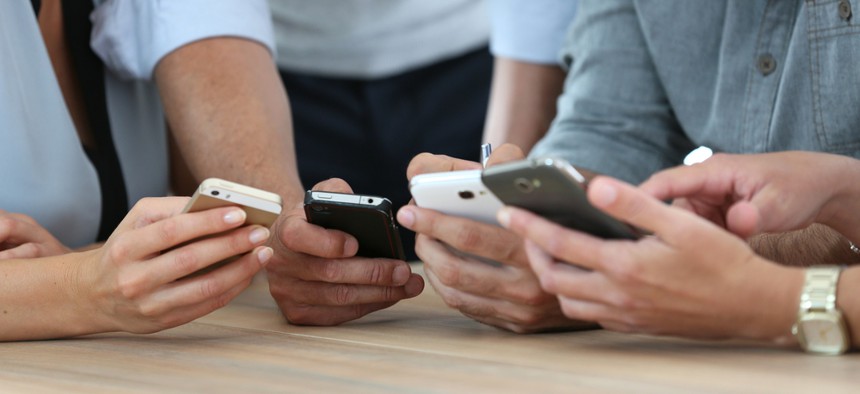
Goodluz/Shutterstock.com
Smartphone Junkies Report Higher Job Satisfaction
That's because distracting the brain with Candy Crunch and Facebook "improves employee well-being," according to one researcher.
Next time the boss catches you playing games on your phone, try this one out: "Candy Crush is helping boost my workplace performance." It wouldn't be a total lie because—and you can thank me later for finding this excuse to burn company time—research has linked frequent phone breaks with being a happy worker drone.
This good news for gaming addicts comes from Sooyeol Kim, a doctoral student at Kansas State University who's investigating how new technology can alleviate occupational fatigue. Kim believes there's something to be said for "microbreaks," the kind of work lulls that used to be filled with water-cooler chats and strolls around the office but now increasingly take the form of cell-phone tunnel vision. While logging a solid hour playing Threes would not be great for productivity, making quick check-ins with your favorite apps could refresh the brain enough to fill out another TPS report, believes Kim.
To test this theory, he installed an app that tracked usage histories on the phones of 72 employees from differing fields. He then surveyed these workers on their feelings of well-being at the end of their shifts. Among his findings was that an average employee spends a low-sounding 22 minutes every 8-hour day tapping on a phone. More interesting, workers who sprinkled phone activities all throughout their shifts reported being happier when the time finally came to punch out.
The study's participants whiled away the minutes playing "Angry Birds" and "Candy Crush" and checking Facebook and Twitter, among other things. It's unclear if the kinds of apps they used had different effects on their productivity and mental state. What seemed fundamentally important was the correlation between sojourns to phoneland and job satisfaction, asserts Kim. That might be explained by it being "difficult—and nearly impossible—for an employee to concentrate for eight straight hours a day without a break," he says:
"By interacting with friends or family members through a smartphone or by playing a short game, we found that employees can recover from some of their stress to refresh their minds and take a break," Kim said.
"These days, people struggle with a lot of different types of stressors, such as work demands, time scheduling, family issues or personal-life issues," Kim said. "We need to understand how we can help people recover and cope with stressors. Smartphones might help and that is really important not only for individuals, but for an organization, too."
(Image via Goodluz/Shutterstock.com)






